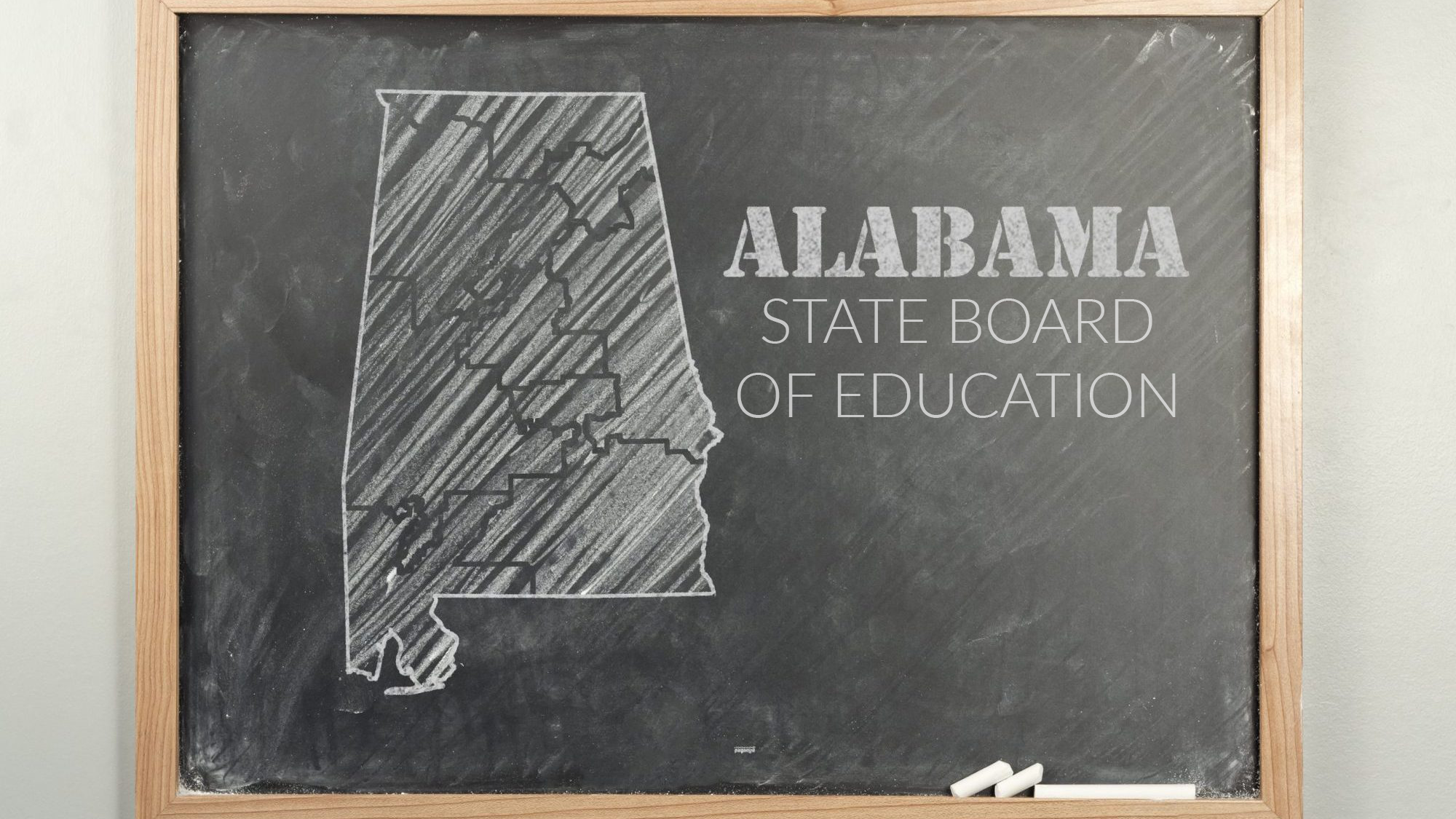The Alabama Legislature passed a state constitutional amendment Friday that would replace Alabama’s State Board of Education with an appointed commission on education and change the education standards for the state.
Senate Bill 397 was sponsored by Senate President Pro Tem Del Marsh, R-Anniston.
The bill was carried in the House by State Rep. Bill Poole, R-Tuscaloosa.
The commission will be appointed by the governor and confirmed by the Alabama State Senate. The bill also replaces the much maligned Common Core education standards. The commission is instructed to replace the Common Core with national standards that can be transferable with the rest of the country. Since this is a constitutional amendment, it will appear on the March 3 ballot for a vote of the people.
During the House floor debate, Poole told legislators that what we are doing is giving the voters the right to vote on whether to continue with the status quo or not.
“If the people don’t like it, they will vote it down,” said State Rep. John Rogers, D-Birmingham. “If they like it, they will vote for it.”
“The status quo is not working,” Poole said. “Why are we ranked 49th in eighth grade math? Why are we ranked 46th in eighth grade reading? And I can go on and on.”
“We have had four superintendents in five years,” Poole said. “If you change football coaches four times in five years, you won’t be winning there either.”
Poole said the racial composition of the commission will be based on the racial makeup of the student population. On the current Board of Education, there are two black board members. With the current racial composition of the students, that would go up to three.
The governor will appoint the members of the commission, and the Senate will confirm; but the Legislature passed special legislation for the three minority seats on the commission. The House Black Caucus will provide the governor a list of three names that they can pick one member from, and the Senate Black Caucus will do the same. For the third minority member, both the House and the Senate Black Caucuses will provide the list of three names. If the governor does not like the three names on one of the lists, they will be provided with a second list to choose from.
That was not part of the amendment, but was instead passed in separate legislation, Senate Bill 398, also sponsored by Marsh. Since that is statute and not embedded in the amendment itself, the Republican supermajority could, in theory, strip the minority caucus of their role in picking commission members by future legislation if and when they no longer need the minority to pass their agenda.
Poole said the Legislature has passed the largest education budget in history, but money alone is not going to solve the problems. He said the governor will appoint “subject-matter experts” to the new commission.
“We may have confidence in the current governor, but we don’t know who the next governor will be in four years or eight years from now,” said State Rep. Alan Farley, R-McCalla.
Poole said we have to rely on the Senate on approving the confirmations.
“For the first time, someone is going to be held responsible for education, and that is the governor,” Poole said. “We have identified the failing schools in the state, but what are we doing about it?”
“A failing school is a reflection of a failing community, which is a reflection of a failing family,” Farley said.
“We should not have a failing elementary school,” Poole said. “When you have a failing elementary school, you get failing middle schools and high schools.”
Farley said the state and federal government spend $2.2 billion on DHR trying to fix failing families.
“The Pardons and Paroles board is going to be appointed,” said State Rep. Louise Alexander, D-Bessemer. “Now, the school board. Are we giving the governor too much power?”
“We want to achieve the best governance possible,” said State Rep. Alan Baker, R-Brewton.
Baker said in his career as an educator, he had worked for both elected and appointed school superintendents and that sometimes the elected superintendents did things for political reasons and not for what was in the best interest of education.
“The top-10 states in education all have school boards appointed by the governor,” Poole said.
“You change the school system by putting books in school,” said State Rep. Juandalyn Givan, D-Birmingham. “You change the school system by putting good teachers in schools, and you do that by giving more than a measly 4 percent raise. You change the school system by getting more parental involvement. This won’t change the schools.”
Poole said the new Alabama Commission on Elementary and Secondary Education would choose the right standards for the state of Alabama.
“Teachers like Common Core,” said State Rep. Pebblin Warren, D-Tuskegee. “I think when all is said and done, it is going to be common core with another name.”
“There is more to this than trying to change how the school board is being governed,” said state Rep. Christopher John England, D-Tuscaloosa. “You say you want to take politics out of education, but when it is on the ballot, they are going to say, ‘Come vote for this to get rid of common core.’”
The bill passed the House 78 to 21. It had already passed the Senate.
Because it is an amendment and not a regular bill, it bypasses the governor and goes straight to the voters on March 3.
The 2019 Alabama Legislative Session is now over. This bill was passed just a few hours before the end of the session.






















































